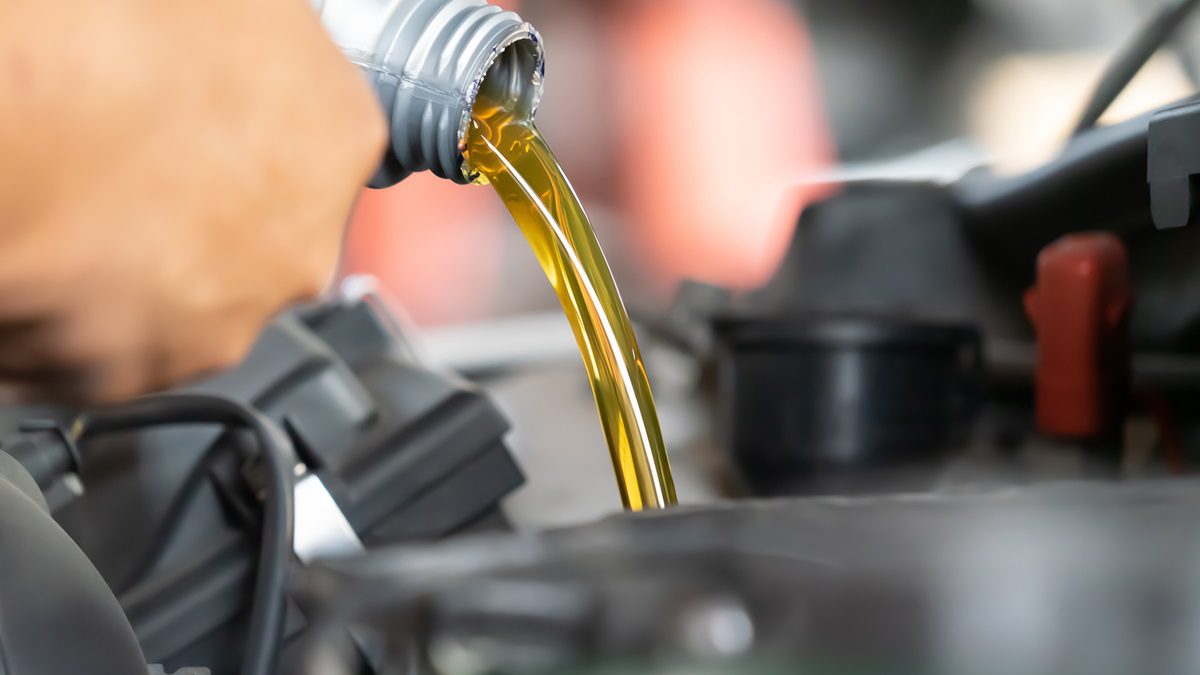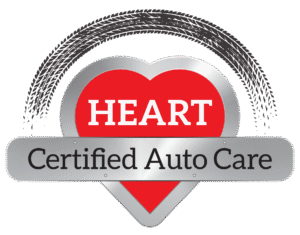Jeep Fuel System Maintenance in Evanston: FAQs Answered


Knowing how your Jeep’s fuel system works is key to keeping it running smoothly and making sure it lasts for years to come. While many people think regular oil changes and tire rotations are enough, the fuel system plays a critical role in your Jeep’s overall health. Ignoring signs of wear or skipping maintenance can lead to costly repairs down the line. In this post, we’ll focus on frequently asked questions about Jeep fuel system maintenance in Evanston to help you keep your vehicle running smoothly.
FAQs about Jeep Fuel System Maintenance in Evanston
FAQs about Jeep Fuel System Maintenance in Evanston provide essential information for Jeep owners looking to keep their vehicles running smoothly. These FAQs can help you better understand your Jeep’s fuel system care and maintenance, allowing you to make well-informed decisions.
1. What Is Included in a Jeep Fuel System?
Before diving into the maintenance tips, it’s important to understand what your Jeep’s fuel system consists of. Several key components make up this system, each contributing to its function. Here’s a quick rundown:
- Fuel Tank: Stores gasoline or diesel fuel.
- Fuel Pump: Delivers fuel from the tank to the engine.
- Fuel Injectors: Sprays fuel into the engine for combustion.
- Fuel Filter: Removes impurities from the fuel.
- Fuel Lines: Transport fuel from one component to another.
Each of these parts needs regular inspection and maintenance to avoid failure. Let’s get into the details of Jeep fuel system maintenance in Evanston and how to keep these components in tip-top shape.
2. Why Is Jeep Fuel System Maintenance Important?
Fuel system maintenance is more than just a preventive measure; it’s crucial for safety, fuel efficiency, and engine performance. A well-maintained fuel system ensures that your Jeep uses fuel efficiently, preventing waste and reducing emissions. It also ensures smooth acceleration and consistent power delivery, making your rides more enjoyable.
Key reasons for maintaining the fuel system include:
- Fuel Efficiency: A clean and well-functioning system optimizes how fuel is used, saving you money at the pump.
- Prevention of Engine Damage: Neglecting your fuel system could lead to clogged fuel lines, a malfunctioning fuel pump, or dirty injectors, which might damage your engine.
- Safety Concerns: Leaks in your fuel system could lead to dangerous situations like fires or hazardous fumes.
By addressing the maintenance of each component regularly, you can prevent a lot of issues that may otherwise surprise you on the road.
3. Signs That Your Jeep’s Fuel System Needs Attention
How do you know when it’s time to schedule a fuel system check? Some signs may be subtle, but paying attention to them can save you from bigger problems. Here are a few common symptoms that indicate you need Jeep fuel system maintenance in Northbrook or nearby areas like Evanston:
- Difficulty Starting the Engine: If it takes longer than usual for your Jeep to start, there might be a problem with the fuel pump or injectors.
- Poor Acceleration: If your Jeep hesitates or feels sluggish when you press the gas pedal, fuel flow issues could be to blame.
- Decreased Fuel Efficiency: A sudden drop in miles per gallon (MPG) usually means the fuel system isn’t working as it should.
- Engine Misfires: Misfiring engines can occur when fuel isn’t properly delivered to the engine.
- Unusual Noises from the Fuel Pump: If you hear a whining sound coming from the fuel pump, it may be a sign of impending failure.
Noticing any of these signs means it’s time to take your Jeep to a trusted mechanic in your area, like HEART Auto Care, for a thorough fuel system inspection.
4. How Often Should I Service My Jeep's Fuel System?
Regular fuel system maintenance ensures efficient fuel delivery and prevents potential issues. Many experts recommend cleaning the fuel system every 60,000 to 90,000 miles. However, if you notice performance issues such as decreased fuel efficiency, engine misfires, or poor acceleration, it might be beneficial to have the fuel system inspected sooner.
5. What Are the Signs of a Dirty or Clogged Fuel System?
Be attentive to the following indicators:
- Reduced Fuel Efficiency: A sudden drop in MPG could suggest clogged fuel injectors or a dirty fuel filter.
- Engine Misfires: Inconsistent fuel delivery can cause the engine to misfire.
- Difficulty Starting: Trouble starting the engine may indicate fuel pump or injector issues.
- Poor Acceleration: Hesitation or sluggishness when accelerating might be due to fuel flow problems.
If you experience any of these symptoms, it’s advisable to consult a professional mechanic for a comprehensive fuel system check.
6. Can I Clean the Fuel System Myself?
While some fuel additives claim to clean the system, professional fuel system cleaning is generally more effective. The process typically involves adding specific cleaners to the fuel tank and using equipment to clean the fuel injectors and combustion chambers.
7. How Much Does Professional Fuel System Cleaning Cost?
The price of a professional fuel system cleaning can vary based on the service provider and your vehicle’s specific requirements. On average, you can expect to pay between $50 and $80 for a standard fuel system cleaning service
8. Is Fuel System Maintenance Included in the Regular Maintenance Schedule?
Jeep’s maintenance schedule includes various inspections and services, but fuel system cleaning is not always specified. It’s important to consult your owner’s manual and discuss fuel system maintenance with your mechanic to determine the best approach for your vehicle.
9. Where Can I Get My Jeep's Fuel System Serviced in Evanston?
For Jeep owners in Evanston, HEART Auto Care is a reputable option for comprehensive fuel system maintenance and other automotive services. They specialize in Jeep repairs and offer a range of services to keep your vehicle in optimal condition.
Regular fuel system maintenance is essential for maintaining your Jeep’s performance and preventing costly repairs. If you notice any signs of fuel system issues or it’s been a while since your last service, consider scheduling an appointment with a trusted mechanic.
10. How Does a Fuel System Cleaning Benefit My Jeep?
A thorough fuel system cleaning does much more than just improve performance; it provides multiple benefits that ensure your Jeep runs efficiently for years to come. Here are the main advantages of scheduling Jeep fuel system maintenance in Northbrook and Evanston:
- Improved Fuel Efficiency: By removing deposits from the fuel injectors and fuel lines, the engine can burn fuel more efficiently, giving you better miles per gallon (MPG).
- Restored Engine Power: A clean fuel system ensures that fuel is delivered at optimal pressure, resulting in smoother acceleration and more consistent engine power.
- Reduced Emissions: Keeping your fuel system clean also reduces the harmful emissions produced by your Jeep, contributing to a cleaner environment.
- Prevention of Costly Repairs: Regular maintenance prevents the buildup of debris and grime, which can damage critical components like the fuel pump and injectors, helping you avoid expensive repairs.
11. How Often Should You Replace the Fuel Filter?
Replacing the fuel filter is a key part of Jeep fuel system maintenance in Northbrook. This part filters out debris and impurities from the fuel before it enters your engine. As time passes, the filter can get clogged, restricting fuel flow and causing performance problems.
Replacing the fuel filter is typically recommended by most manufacturers every 20,000 to 40,000 miles, though this can vary based on your driving habits and the fuel quality you use. If you frequently drive in harsh conditions, such as dusty environments or areas with low-quality fuel, you may need to replace the filter more frequently.
Signs that your fuel filter needs replacement include:
- Poor Acceleration: If your Jeep hesitates or feels slow to respond when you press the gas, it could be due to a clogged fuel filter.
- Frequent Stalling: A clogged filter can reduce fuel flow to the engine, causing it to stall.
- Engine Light: In some cases, a failing fuel filter may trigger the check engine light.
Regularly replacing the fuel filter is a simple yet effective way to ensure your Jeep’s fuel system remains clean and efficient.
12. How Can I Tell If My Fuel System Needs Professional Attention?
Knowing when to seek professional help for your fuel system can save you from significant problems down the road. Here are some signs that indicate it might be time to consult a mechanic:
- Unusual Noises: If you hear whining or buzzing sounds from the fuel tank area, it could signal a problem with the fuel pump.
- Check Engine Light: This warning light can indicate various issues, including problems within the fuel system. A diagnostic check will pinpoint the exact cause.
- Fuel Smell: If you smell fuel inside or around your Jeep, it may indicate a leak, which requires immediate attention.
- Performance Issues: If you notice decreased fuel efficiency, engine misfires, or stalling, it’s crucial to have the fuel system inspected as soon as possible.
Addressing these issues early can prevent further damage and expensive repairs, ensuring your Jeep stays in excellent condition.
Choose HEART Auto Care for Fuel System Maintenance in Evanston
For those in the Evanston and Northbrook areas, HEART Auto Care offers specialized services to maintain your Jeep’s fuel system. Their skilled mechanics understand the intricacies of Jeep vehicles and provide tailored maintenance to enhance performance and longevity.
Regular Jeep fuel system maintenance in Northbrook not only keeps your vehicle running smoothly but also ensures that you avoid costly repairs in the future. Don’t wait until problems arise; proactive maintenance is key to keeping your Jeep in top shape.
If you’re in Evanston or Northbrook and need expert fuel system maintenance or any auto repair services, contact HEART Auto Care today. Their dedicated team is ready to help you keep your Jeep performing at its best.










